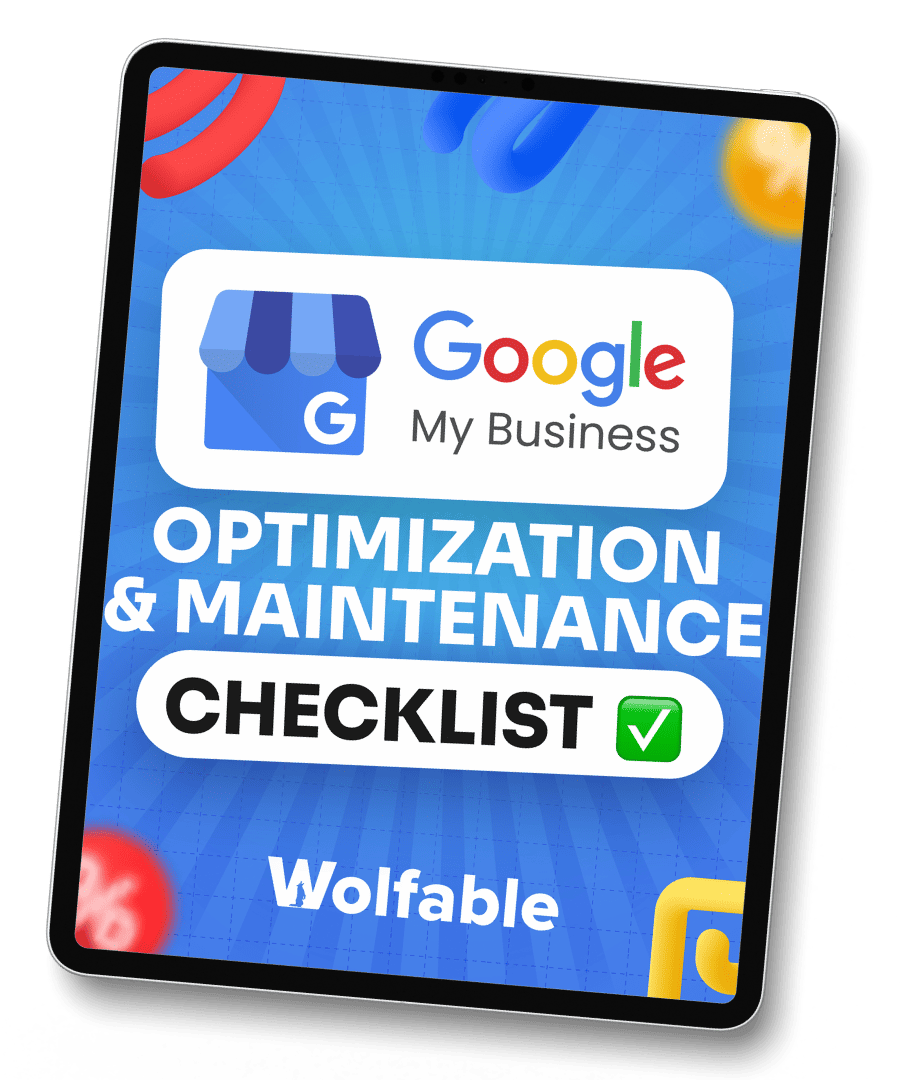Wraps up in 8 Minutes
In today's digital-first world, mental health clinics face unique challenges and opportunities when connecting with potential patients. Digital marketing for mental health clinics isn't just about having a website anymore—it's about creating a comprehensive online presence that builds trust, educates your community, and helps those in need find your services exactly when they're searching for help.
But how do you cut through the noise in such a sensitive field?
Mental health is personal. It requires nuance, empathy, and professionalism in every marketing touchpoint. That's why specialized digital marketing strategies are essential for clinics looking to grow while maintaining the integrity and compassion their practice represents.
This guide unpacks everything clinic owners and marketing directors need to know about effectively promoting mental health services online—from SEO best practices that help patients find you, to content strategies that establish your expertise, to digital advertising approaches that respect privacy while reaching those who need your care.
What Is Mental Health Clinic Digital Marketing?
Digital marketing for mental health clinics encompasses all online efforts to connect your practice with potential patients. It's a strategic approach that leverages various digital channels to build your clinic's reputation, increase visibility, and ultimately help more people access mental health care.
Unlike traditional advertising, digital marketing allows you to:
- Target specific audiences based on needs and behaviors
- Measure results with precise analytics
- Adjust strategies in real-time based on performance
- Connect with patients across multiple touchpoints
- Build long-term relationships through valuable content
The most effective digital strategies for mental health providers include a combination of:
- Search engine optimization (SEO) that helps your clinic appear when people search for mental health services
- Content marketing that educates and builds trust with thoughtful blogs and resources
- Social media presence that reduces stigma and creates community around mental wellness
- Email nurturing that maintains connections with potential and current patients
- Paid advertising that reaches people looking for specific treatments or services
- Website development focused on patient experience and conversion
- Video content that humanizes your practice and explains complex topics
When implemented thoughtfully, these channels work together to create a cohesive digital ecosystem for your clinic.

Why Mental Health Clinics Need It
In an increasingly crowded healthcare landscape, digital marketing has become essential—not optional—for mental health clinics. Here's why:
1. Changing Patient Behavior
Today's mental health patients actively research their symptoms, treatment options, and potential providers online before reaching out for professional help. Without a strong digital presence, your clinic simply won't be considered by many potential patients.
Recent studies show that 76% of people search online for health information before booking appointments, and this percentage is even higher for mental health services due to privacy concerns.
2. Increased Competition
The mental health field has expanded dramatically, with telehealth options, apps, and new clinic models all competing for patients' attention. Standing out requires deliberate digital strategy.
3. Trust-Building Necessity
Mental health services demand exceptional trust. Digital marketing allows you to demonstrate expertise, share patient testimonials, and build credibility before someone ever walks through your door.
4. Patient Education Opportunities
Many people don't fully understand their mental health symptoms or treatment options. Digital content helps educate potential patients while positioning your clinic as a trusted resource.
Let's look at the potential ROI different digital channels offer mental health clinics:
| Digital Channel | Average ROI for Mental Health | Primary Benefit | Time to Results |
|---|---|---|---|
| SEO | 5–12x investment | Sustained organic traffic | 3–6 months |
| Content Marketing | 3–6x investment | Authority building | 2–6 months |
| Social Media | 2–4x investment | Community building | 1–3 months |
| Email Marketing | 36–44x investment | Patient retention | 1–2 months |
| PPC / Paid Search | 3–5x investment | Immediate visibility | Immediate |
| Website Design | 5–10x investment | Improved conversions | 1–3 months |
| Video Marketing | 4–8x investment | Engagement & trust | 1–2 months |
Core Services & How They Help
1. Social Media Marketing
Social media offers mental health clinics unique opportunities to reduce stigma, share educational content, and build meaningful connections with your community.
Which platforms work best for mental health clinics?
- Instagram: Ideal for visual storytelling, infographics on mental health topics, and behind-the-scenes glimpses of your practice
- Facebook: Perfect for community building, support groups, and event promotion
- LinkedIn: Excellent for B2B connections with referring providers and establishing professional credentials
- Twitter: Useful for joining mental health conversations and sharing timely resources
- TikTok: Growing platform for reaching younger demographics with brief educational content
Content types that perform well:
- Mental health myth busters
- Self-care tips and techniques
- Staff introductions that humanize your practice
- Client success stories (with appropriate permissions)
- Research updates in accessible language
- Crisis resources and hotline information
The ideal posting frequency depends on your resources, but consistency matters more than volume. Even 2-3 quality posts weekly on your primary platforms can build significant engagement over time.
2. SEO for Mental Health Clinics
Search engine optimization helps potential patients find your clinic when they're actively looking for help. For mental health services, SEO requires special consideration of both technical factors and sensitive content needs.
On-page SEO best practices for mental health clinics:
- Create service pages for specific treatments (CBT, EMDR, group therapy)
- Include location-specific keywords for local search visibility
- Publish content addressing common mental health questions
- Optimize page titles and meta descriptions with relevant keywords
- Ensure fast page loading and mobile responsiveness
- Structure content with helpful headings and readable paragraphs
Off-page SEO strategies:
- Build relationships with referring healthcare providers
- Get listed in mental health provider directories
- Contribute guest articles to reputable health websites
- Encourage satisfied patients to leave reviews (within ethical guidelines)
- Create shareable infographics and resources that earn backlinks
Local SEO for clinic visibility:
- Claim and optimize your Google Business Profile
- Ensure consistent NAP (Name, Address, Phone) across all listings
- Collect and respond to Google reviews
- Create location-specific content and landing pages
- Use local schema markup on your website
When properly implemented, these SEO strategies help ensure your clinic appears when potential patients search for relevant terms like "therapist near me," "depression treatment," or specific services you offer.
3. Email Marketing for Mental Health Clinics
Email marketing creates direct, private connections with potential and current patients. For mental health clinics, email offers a confidential channel to nurture relationships while providing valuable resources.
Effective newsletter ideas for mental health clinics:
- Monthly mental wellness tips
- New research simplified and explained
- Therapist spotlights introducing staff expertise
- Seasonal mental health challenges and coping strategies
- FAQ sessions answering common treatment questions
- Community resource highlights and partnerships
Smart segmentation strategies:
- By interest in specific mental health topics
- By stage in the patient journey (considering, new patient, ongoing)
- By services previously used or inquired about
- By referral source to customize messaging
- By demographic factors that influence treatment approaches
Most importantly, email marketing for mental health must prioritize privacy. Never include sensitive information, always use BCC for group emails, and be transparent about your privacy practices.
4. Performance Marketing
Pay-per-click advertising and other performance marketing strategies give mental health clinics targeted visibility exactly when potential patients are searching for help.
Google Ads strategies for mental health clinics:
- Target specific treatment and condition keywords
- Create dedicated landing pages for each service type
- Use ad extensions to highlight insurance acceptance
- Implement call tracking to measure appointment conversions
- Set appropriate geographic targeting to reach your service area
- Exclude irrelevant keywords to avoid wasting budget
Effective remarketing approaches:
- Develop nurturing display ads for website visitors
- Create value-focused content offers for remarketing audiences
- Use privacy-first approaches that don't reveal sensitive interests
- Set frequency caps to avoid overwhelming potential patients
- Exclude sensitive content categories from placements
Performance marketing for mental health requires special attention to privacy concerns. Ads should be informative rather than exploitative, and targeting must respect the sensitive nature of mental health searches.
Get a Free Mental Health Clinic Marketing Audit from Wolfable
5. Branding & Digital Strategy
Your clinic's brand extends far beyond your logo—it encompasses your entire digital presence, from website design to the language you use in communications.
Key branding elements for mental health clinics:
- Visual identity: Colors, fonts, and design elements that convey trust and calm
- Voice and tone: Language that balances professionalism with warmth and empathy
- Positioning: How you differentiate from other providers (specialties, approach, values)
- Core messaging: Consistent communication about your unique treatment philosophy
- Digital touchpoints: Cohesive experience across website, social, email, and listings
Strategic digital planning includes:
- Competitive analysis of other providers in your area
- Patient journey mapping from awareness to care completion
- Channel strategy determining priority platforms and content types
- Measurement frameworks to track meaningful engagement
- Resource allocation across various digital initiatives
Effective branding helps potential patients recognize when they've found the right provider for their needs. It reduces anxiety about seeking care and creates immediate connection.
6. Content & Video Marketing
Content marketing establishes your clinic's expertise while providing valuable information to those seeking mental health support. Video adds a human dimension that builds trust before patients ever meet you in person.
High-performing content formats:
- Expert blog posts on mental health topics
- Downloadable self-assessment tools
- Infographics explaining complex concepts
- FAQ pages addressing common concerns
- Patient stories (with appropriate permission)
- Treatment guides explaining your approach
- Provider profiles highlighting qualifications
Video content opportunities:
- Virtual office tours reducing new patient anxiety
- Brief therapy approach explanations
- Guided mindfulness or grounding exercises
- Meet-the-team introductions
- Patient testimonials (following ethical guidelines)
- Common questions answered by providers
Content marketing for mental health must balance being findable (SEO-optimized) with being responsible. Focus on evidence-based information, include appropriate disclaimers, and always guide readers toward professional help for serious concerns.
7. Web Development & AI Solutions
Your website is often the first impression potential patients have of your practice. For mental health clinics, it must balance professionalism with warmth while making it simple to take the next step toward care.
Essential website elements for mental health clinics:
- Clear service descriptions in accessible language
- Straightforward appointment booking process
- Provider profiles with credentials and specialties
- Insurance and payment information
- Privacy policy and HIPAA compliance statements
- Mobile-responsive design for on-the-go access
- Fast loading speeds (especially important for crisis situations)
- Accessible design for users with disabilities
AI enhancements for mental health websites:
- Appointment scheduling chatbots
- Initial screening tools (with appropriate disclaimers)
- Resource recommendation systems
- After-hours support automation
- Personalized content delivery based on interests
The best mental health websites prioritize user experience at every level—from intuitive navigation to clear calls-to-action that guide visitors toward appropriate care options.
From Strategy to Execution: How to Get Started
Implementing digital marketing for your mental health clinic doesn't have to be overwhelming. Follow this structured approach to build a sustainable strategy:
1. Assess Your Current Digital Presence
Before making changes, evaluate what's already working:
- Audit your website's performance and user experience
- Review existing social media accounts and engagement
- Check your Google Business Profile and online reviews
- Examine your current search engine rankings
- Identify your most effective patient acquisition channels
Implementing digital marketing for your mental health clinic doesn't have to be overwhelming. Follow this structured approach to build a sustainable strategy:
2. Define Clear Objectives
Establish specific, measurable goals for your digital marketing:
- Increase new patient inquiries by X%
- Improve website conversion rate to Y%
- Grow email subscriber list to Z contacts
- Achieve first-page rankings for [specific keywords]
- Increase social media engagement by X%
3. Identify Your Ideal Patients
Develop detailed personas representing your target patients:
- Demographics (age, location, income level)
- Specific mental health concerns
- Insurance coverage and payment preferences
- Digital behavior (where they search for information)
- Key questions and hesitations about seeking care
4. Develop Your Content Strategy
Create a plan for educational content that addresses patient needs:
- Blog calendar organized by topics and keywords
- Social media content themes and posting schedule
- Email newsletter topics and segmentation approach
- Video content priorities and production timeline
- Downloadable resources and lead magnets
5. Implement and Measure
Launch your strategy and establish regular performance reviews:
- Set up Google Analytics with appropriate goals
- Create monthly reporting dashboard
- Schedule quarterly strategy reviews
- Test and refine messaging and channels
- Collect patient feedback on digital experience
Conclusion & Next Steps
In today's digital landscape, effective online marketing isn't just about growing your mental health practice—it's about connecting those in need with life-changing care. The right digital strategy helps you extend your clinic's healing mission beyond your physical walls.
As you implement these digital marketing strategies, remember that authenticity matters above all. The same empathy and expertise that define your clinical practice should shine through in every digital touchpoint.
Ready to transform your mental health clinic's digital presence? Wolfable - recognized as the best healthcare marketing agency in India - specializes in healthcare marketing that balances growth with the unique ethical considerations of mental health services.
Our approach blends creativity with performance to build iconic healthcare brands that genuinely connect with patients seeking support. Since 2016, we've helped mental health practices like yours cement decisions to promises—turning marketing strategies into meaningful patient relationships.
Take the first step: Schedule a complimentary 30-minute digital strategy session where we'll assess your current online presence and identify your three highest-impact opportunities for growth.
Contact us at +91 85113 93399 or email contact@wolfable.com to book your consultation today.
FAQs About Mental Health Marketing
Healthcare Marketing Agency in London, UK
Wolfable is a full-service healthcare marketing agency in London, UK dedicated to helping hospitals, doctors, and wellness clinics grow their presence and attract more patients. We offer comprehensive services, including auditing strategies and marketing for Mental Health Clinics. Our expertise spans new patient acquisition programmes, search engine marketing, web development, e-commerce solutions, social media marketing, and YouTube marketing. With a deep understanding of the healthcare sector, our strategies are tailored to meet your specific needs, ensuring compliance and delivering measurable results. Whether you aim to enhance your online reputation or expand your practice, Wolfable is here to help you succeed, connect with us today!









